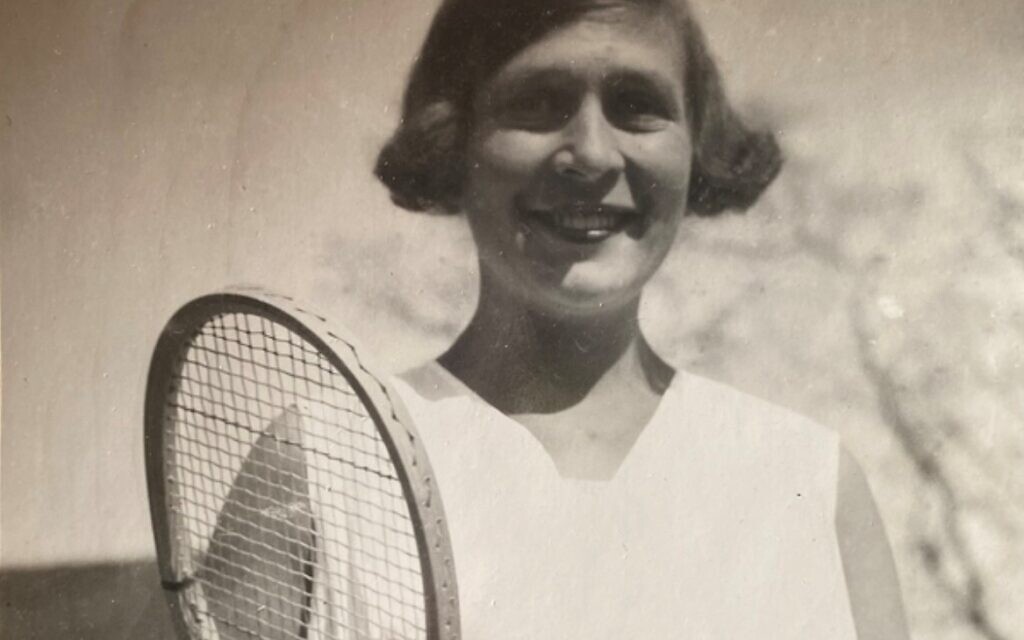From Nazi Europe to Wimbledon – how a Jewish tennis prodigy made her way to Centre Court
Liesl Herbst fled the Nazis and ended up playing championship tennis in the UK with her daughter
Like many doting Jewish grandparents, Liesl Herbst regaled her granddaughter Felice with happy stories of her life growing up in Austria-Hungary a century ago. What she didn’t tell Felice, was that she escaped the Nazis whilst the rest of her family were murdered, and ended up playing tennis at Wimbledon, alongside her daughter and Felice’s mother, Dorli.
When Felice Hardy stumbled across her fascinating family history, she went to work researching her grandmother’s life and ended up recording it in a book: The Tennis Champion who Escaped the Nazis.
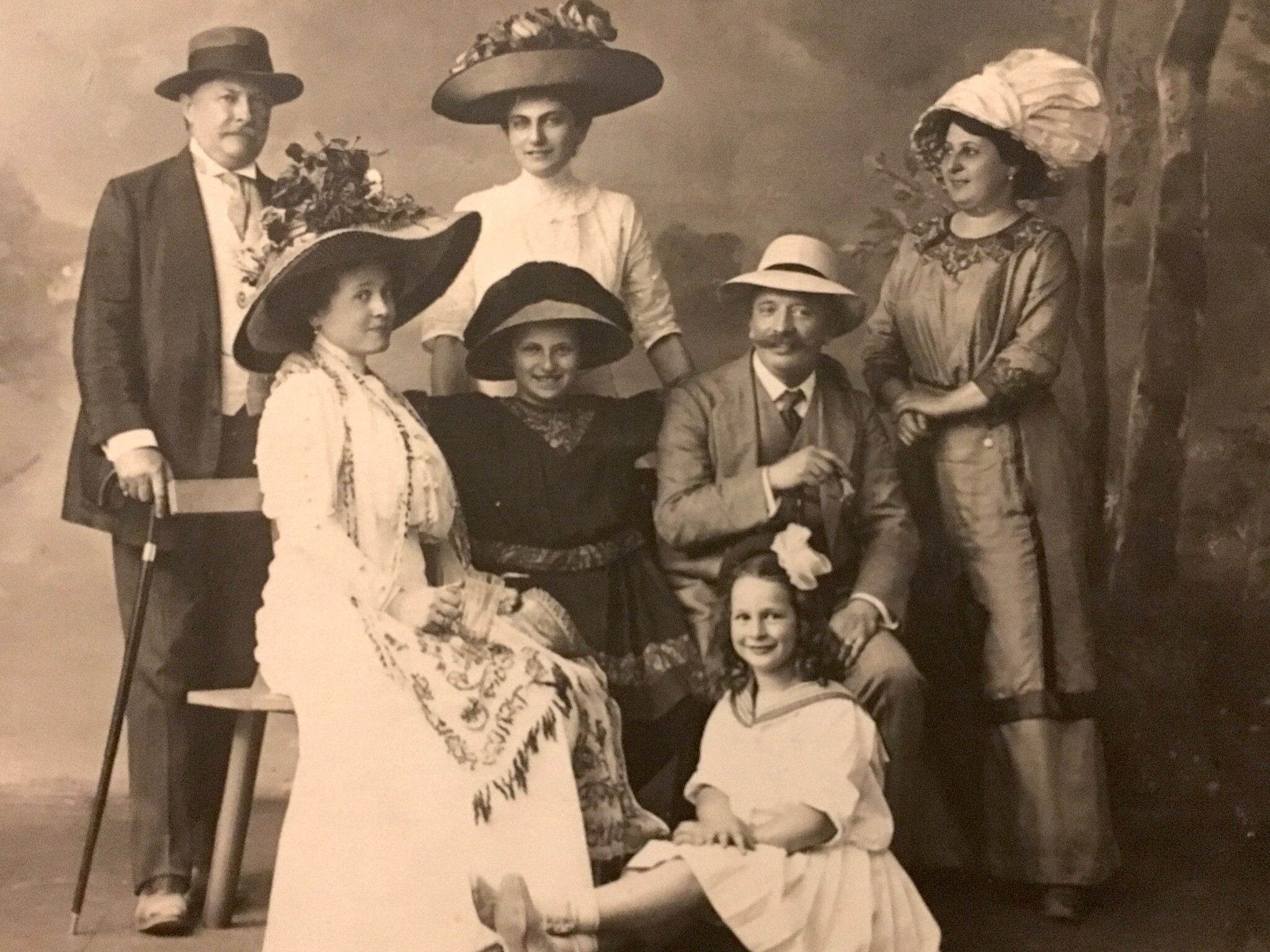
“Throughout my childhood, my grandmother told me lots of stories about her childhood, but she told me only the nice, sweet stories, to make me laugh,” explains Felice. “Her father owned a distillery, and she had a very privileged childhood in what is known today as the Czech Republic but was then the Austria-Hungary empire.
Get The Jewish News Daily Edition by email and never miss our top stories Free Sign Up
“She was always optimistic, but as I got older, she told me some stories which weren’t quite so nice, such as how my grandfather had to travel with a smuggler to get out of Austria and journey to England.
“Liesl told me she had played tennis, but not that my mother had played at Wimbledon so many times, because my mother had given up tennis by the time I was born and had taken up golf. After she died, in 1990, I found a suitcase full of letters and photographs and documents related to her tennis. They were mostly in German, but I got them translated. It turned out that she played tennis all over Europe in the 1930s.”
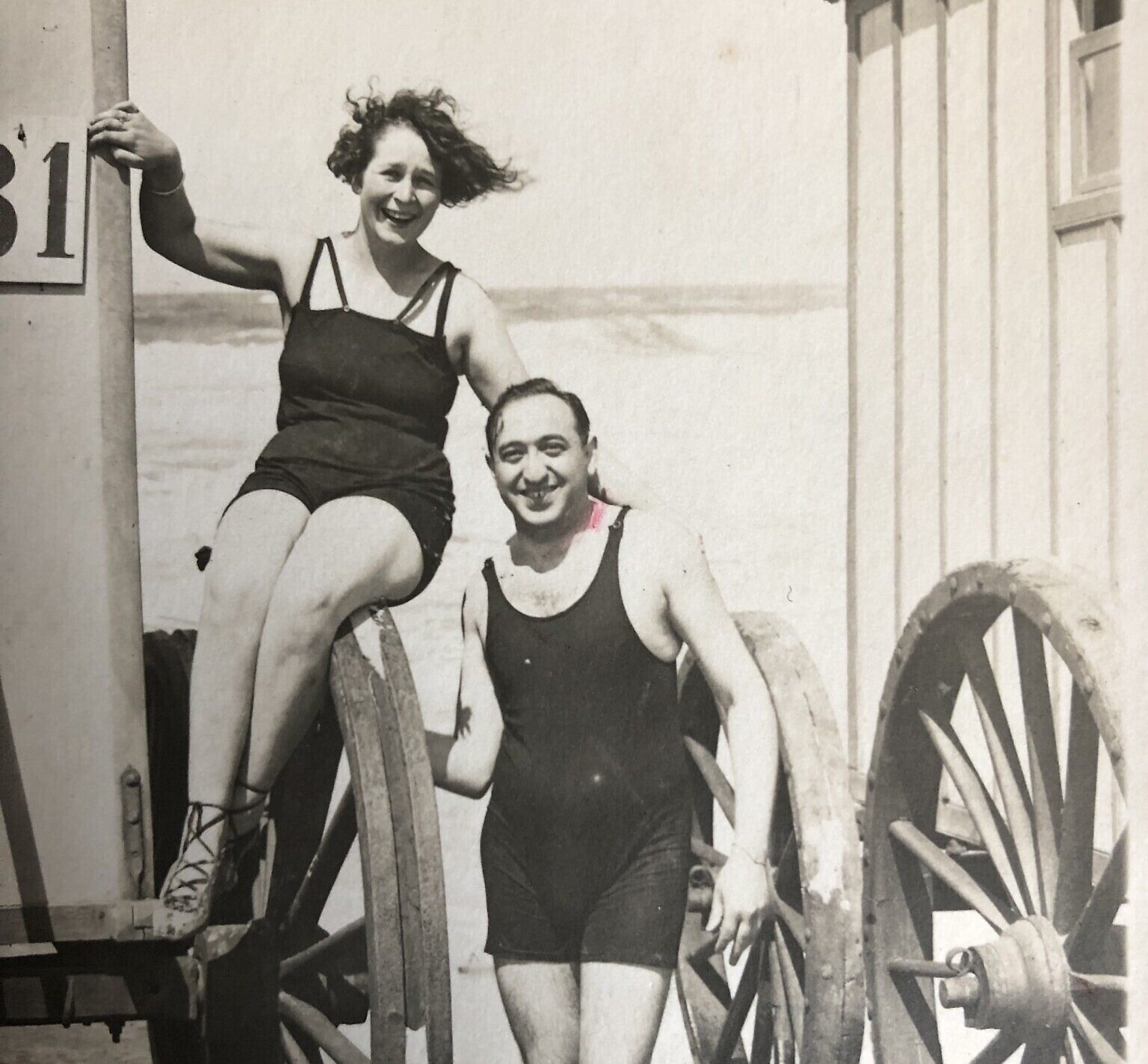
Indeed in 1930, aged 27, Liesl Herbst was the Austrian National Tennis Champion, and a celebrity in Vienna. She played in more than 70 tournaments throughout Europe, winning at least 15 singles titles.
Meanwhile, Liesl’s husband David was also involved in sport, spending ten years as president of the famous sports club Hakoa Vienna.
The rise of Hitler meant that Liesl, David and their daughter Dorli – Felice’s mother – fled to Britain to escape the Nazis. In London, though initially stripped of their Austrian passports and rendered stateless aliens, Liesl and her daughter Dorli competed at Wimbledon. They remain the only mother and daughter ever to have played doubles together at Wimbledon.
Liesl played at Wimbledon twice, representing Czechoslovakia in the Ladies Singles in 1939. She also partnered her daughter in the 1946 Wimbledon doubles tournament. Dorli competed in the Ladies Singles at Wimbledon in 1946, 1947 and 1948.
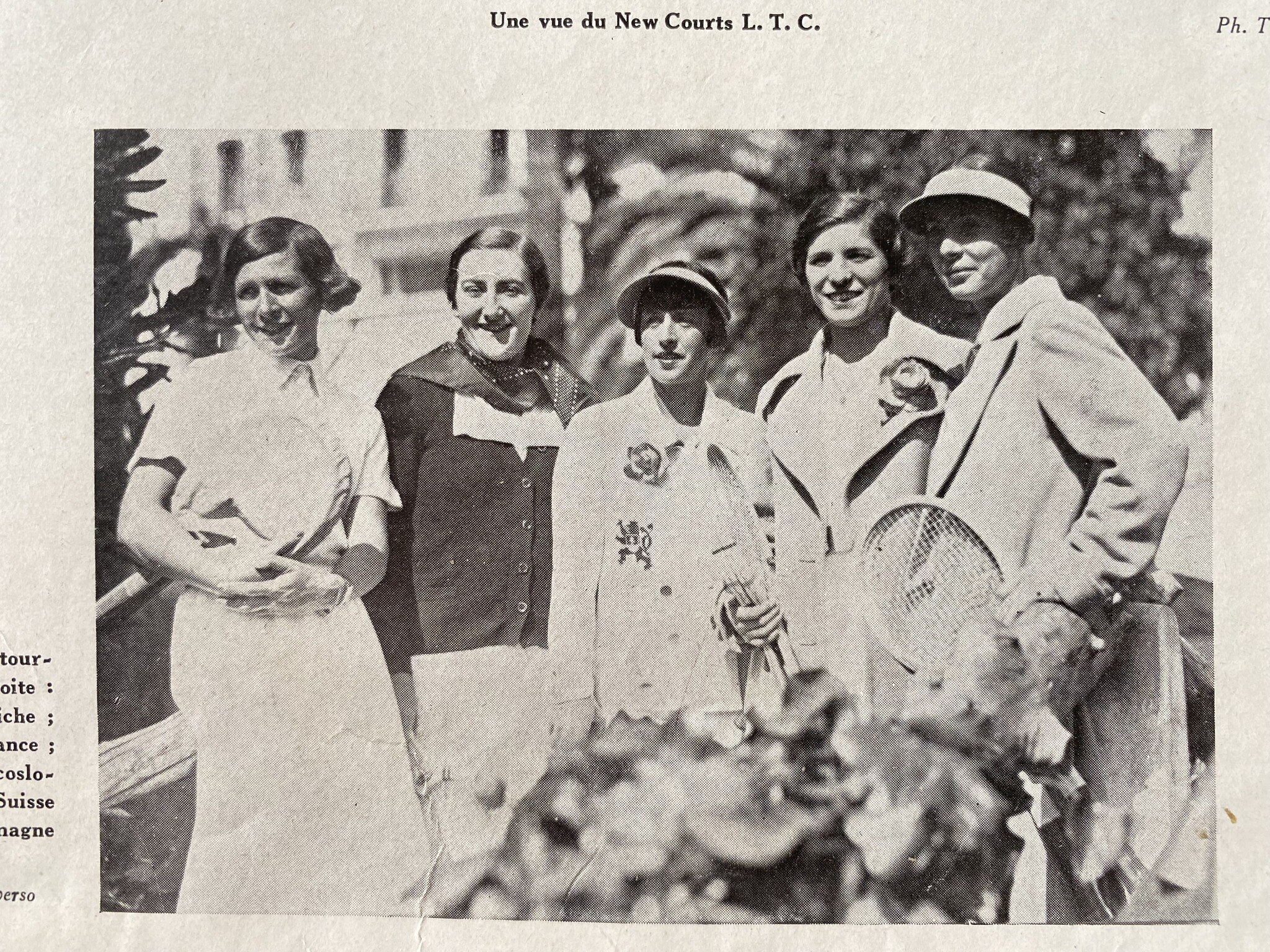
“Liesl lost her main playing years because of the war,” says Felice. “She was always ranked in Austria’s top two, but life became difficult for her when Hitler came to power in Germany, and she wasn’t invited to play in the main events. She never told me any of this, but I found it out during my research. My grandmother never got that far at Wimbledon, but she was 35 and it was the first time she had played on grass. She had to beat three women to qualify, including Tim Henman’s grandmother, Susan Billington, who was a regular at Wimbledon.
“Their record of being the only mother and daughter to have played doubles together at Wimbledon is unlikely to be broken because it was an amateur sport then and you could be playing at 40.
“My mother wanted me to play tennis, but I never went to the lessons and my passion has always been skiing. I wish I had taken it more seriously when I was a child, but I wasn’t very interested.”
Despite her escape to England, life wasn’t all rosy for Liesl, as she lost her mother and both sisters during the Second World War. Her mother and one sister were killed at Terezin concentration camp, and her other sister was murdered during the Slovak National Uprising. She then lost her daughter Dorli in 1978 (Dorli was 52) but went on to live another 12 years; she died in 1990, aged 86.
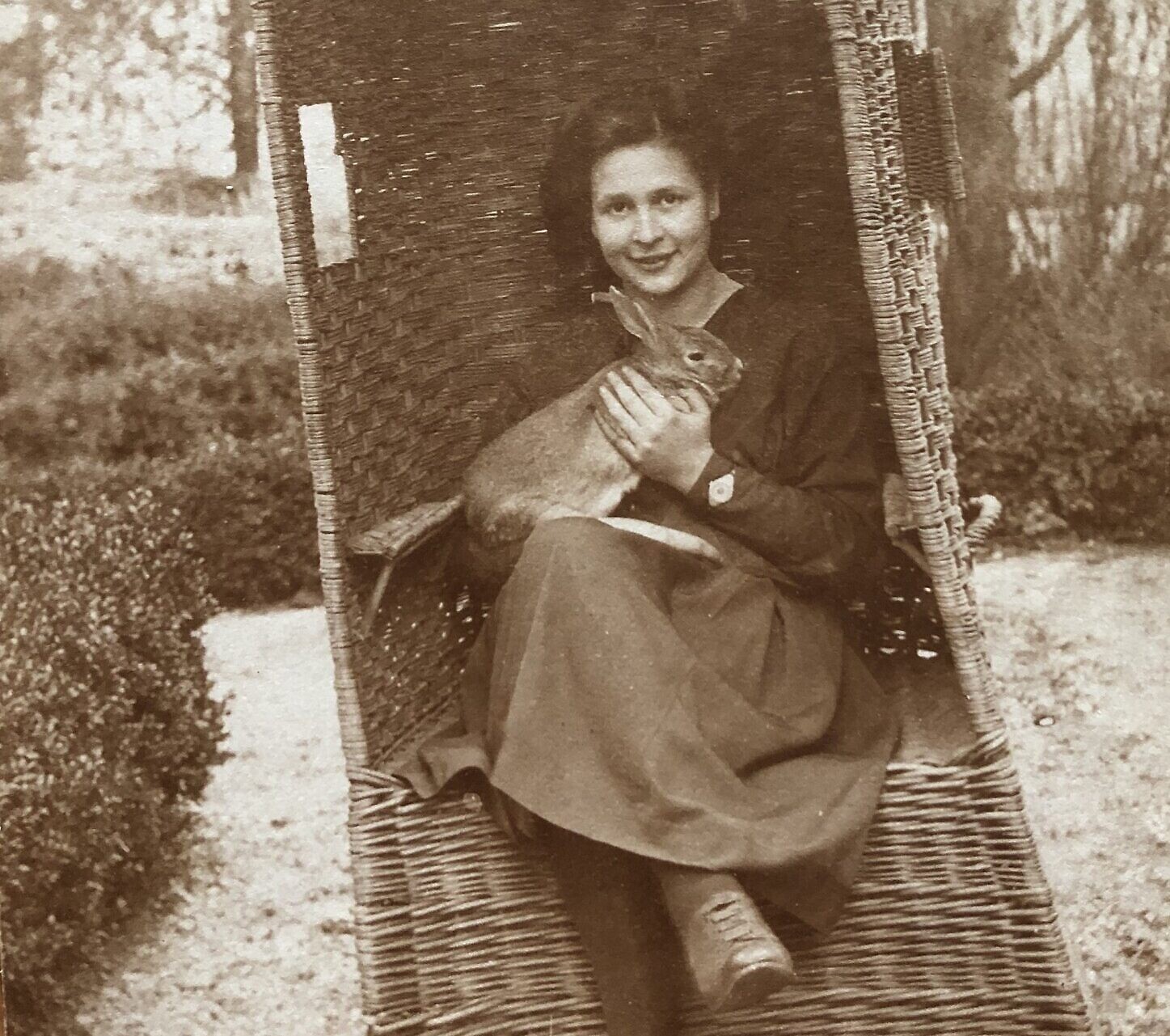
Felice, who is a travel writer based in Somerset, says: “There is something called ‘survivors’ guilt’, not just related to Holocaust survivors, and my grandmother felt guilty because she was the only member of her family who survived. I don’t think she was ever really happy. Those feelings get passed down the line, so writing the book has been very cathartic for me, sharing the experience with my own children over the nine years it has taken me to complete.
“Initially, I wanted to write the story for them and their children, but then I told some friends, and they assured me that other people would be interested. I went to a creative writing class and was encouraged by the teacher to get it out there. It is so important for families to talk about the past, find out more, and pass it on.
“I am really worried that the last Holocaust survivors are now dying. What is going to happen then? It is so important to write down stories like this and challenge the deniers. We must educate people about what our ancestors went through.”
The Tennis Champion Who Escaped the Nazis: Liesl Herbst’s Journey, from Vienna to Wimbledon by Felice Hardy is published by Ad Lib on 3rd July 2023 (paperback RRP £9.99) Available from all bookshops and online.
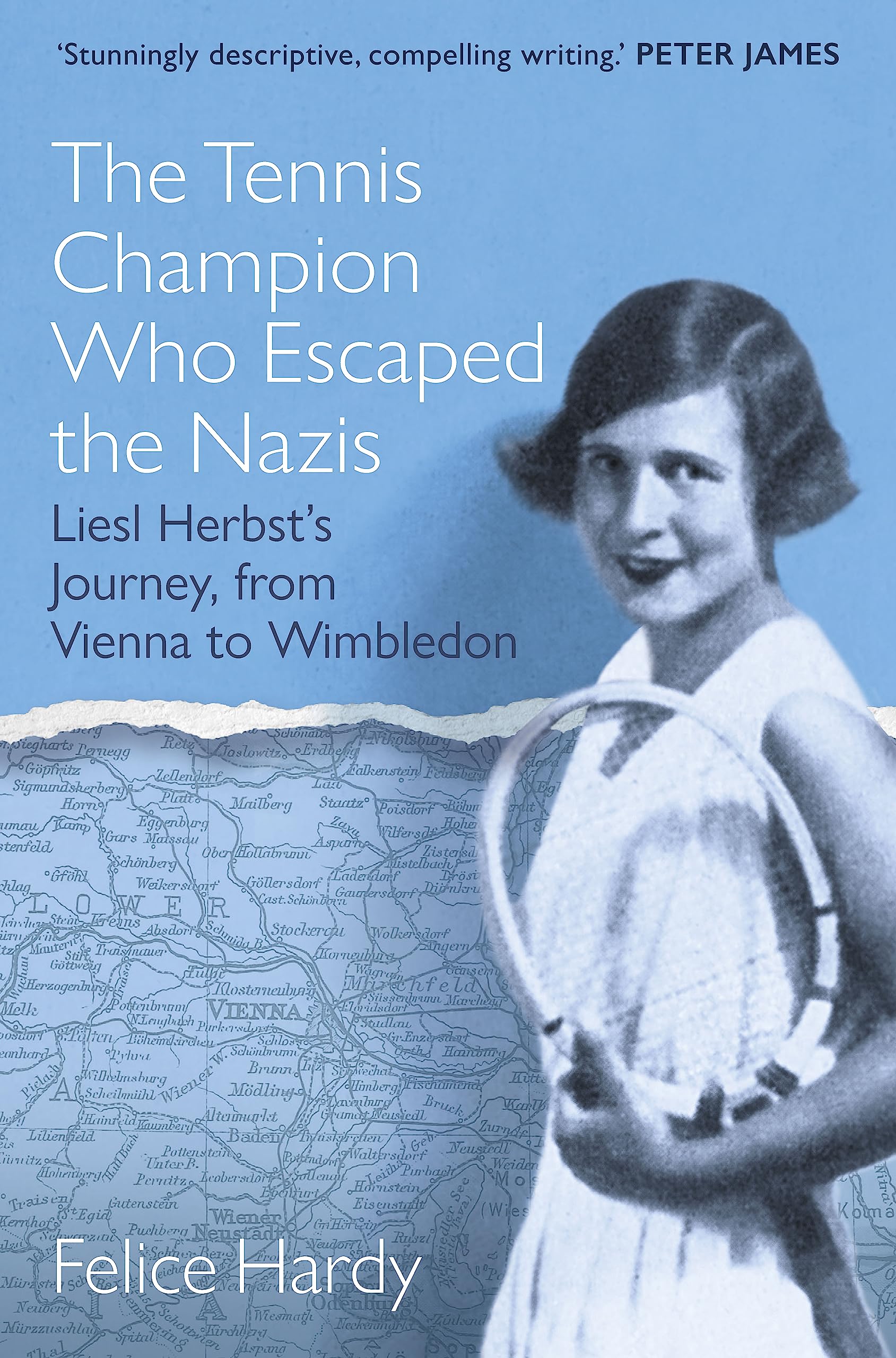

Thank you for helping to make Jewish News the leading source of news and opinion for the UK Jewish community. Today we're asking for your invaluable help to continue putting our community first in everything we do.
For as little as £5 a month you can help sustain the vital work we do in celebrating and standing up for Jewish life in Britain.
Jewish News holds our community together and keeps us connected. Like a synagogue, it’s where people turn to feel part of something bigger. It also proudly shows the rest of Britain the vibrancy and rich culture of modern Jewish life.
You can make a quick and easy one-off or monthly contribution of £5, £10, £20 or any other sum you’re comfortable with.
100% of your donation will help us continue celebrating our community, in all its dynamic diversity...
Engaging
Being a community platform means so much more than producing a newspaper and website. One of our proudest roles is media partnering with our invaluable charities to amplify the outstanding work they do to help us all.
Celebrating
There’s no shortage of oys in the world but Jewish News takes every opportunity to celebrate the joys too, through projects like Night of Heroes, 40 Under 40 and other compelling countdowns that make the community kvell with pride.
Pioneering
In the first collaboration between media outlets from different faiths, Jewish News worked with British Muslim TV and Church Times to produce a list of young activists leading the way on interfaith understanding.
Campaigning
Royal Mail issued a stamp honouring Holocaust hero Sir Nicholas Winton after a Jewish News campaign attracted more than 100,000 backers. Jewish Newsalso produces special editions of the paper highlighting pressing issues including mental health and Holocaust remembrance.
Easy access
In an age when news is readily accessible, Jewish News provides high-quality content free online and offline, removing any financial barriers to connecting people.
Voice of our community to wider society
The Jewish News team regularly appears on TV, radio and on the pages of the national press to comment on stories about the Jewish community. Easy access to the paper on the streets of London also means Jewish News provides an invaluable window into the community for the country at large.
We hope you agree all this is worth preserving.
-
By Brigit Grant
-
By Laurent Vaughan - Senior Associate (Bishop & Sewell Solicitors)
-
By Laurent Vaughan - Senior Associate (Bishop & Sewell Solicitors)
-
By Laurent Vaughan - Senior Associate (Bishop & Sewell Solicitors)
-
By Laurent Vaughan - Senior Associate (Bishop & Sewell Solicitors)


